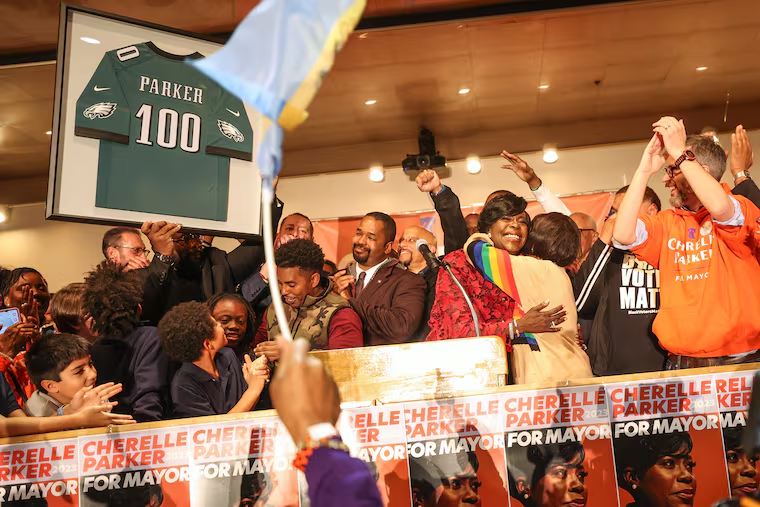What’s next after Cherelle Parker’s historic win in the Philly mayor’s race?
Parker has said she will reveal her pick for police commissioner first to make clear that combating the city’s gun violence crisis is her top priority.

Cherelle Parker will become Philadelphia’s 100th mayor in January. But her administration will begin to take shape well before she is sworn in.
The first formal step will come Thursday, when Parker announces her transition committee and staff, which will include her top aides, key supporters from the campaign, and experts on policy and city government. They will evaluate and make recommendations about potential hires for her administration.
After that, Parker will start announcing some of her choices for the top positions in city government.
» READ MORE: Democrat Cherelle Parker will become Philadelphia’s first female mayor
Parker has said she will reveal her pick for police commissioner first to make clear that combating the city’s gun violence crisis is her top priority. The last two mayors announced their top cops shortly after their general election victories, so the news may come as soon as next week.
During her victory speech Tuesday night, Parker said she is looking for someone “who understands cultural competency, emotional intelligence, a leader who’s not afraid to make tough decisions even though they are not going to be popular.”
She has previously said she’s looking for a law enforcement veteran with experience in Philadelphia. Candidates rumored to be in the mix include Joel Fitzgerald Sr., a former Philly cop who is chief of police for Denver’s transit system and whose son was fatally shot this year while working as a Temple University police officer; Kevin Bethel, the chief of school safety for the Philadelphia School District; and John M. Stanford Jr., who has been serving as interim police commissioner since Danielle Outlaw resigned in September.
Other key roles that Parker may announce this fall include her chief of staff, deputy mayors, and the managing director, who is essentially the chief operating officer of the city.
Parker’s top campaign staffers, campaign manager Sinceré Harris and senior adviser Aren Platt, are likely to hold two of the top roles in the administration. Both have primarily worked in state and federal politics before the mayor’s race, so Parker is also expected to bring on someone with more Philly politics or City Hall experience for a major role.
Additionally, Rachel Meadows, who was the director of policy and legislation on Parker’s Council staff, has already moved over to the executive branch as Kenney’s director of legislative affairs and will likely hold a similar position come January.
Parker will have no shortage of applicants to fill out her government. Many Kenney administration officials are said to be interested in staying on after January, and Parker has said she will conduct national searches for some positions.
Mayors have wide latitude in how they organize their administrations, and the last two have taken different approaches. Former Mayor Michael A. Nutter emphasized the roles of deputy mayors who oversaw discrete policy areas. That approach made the managing director less central to his administration than it traditionally has been for other mayors.
Kenney re-empowered the managing director and had the operating agencies to report to him through that office.
Parker’s will be the first administration to have a chief public safety director, a position that was created by a recent amendment to the city Home Rule Charter championed by Council President Darrell L. Clarke.
Kenney objected to the plan, saying it could tie future mayors’ hands as they form their governments. And some critics viewed it as a power grab by Council because the appointment requires lawmakers’ approval, which is not the case for any other top administration job.
» READ MORE: The Mummer's Parade will delay the next mayor's inauguration
The new position scrambles the traditional organizational structure of the executive branch because the person will report directly to the mayor and will oversee the police, fire, prisons, recreation, and emergency management departments — agencies that currently report to the managing director, at least on paper.
Parker will officially become mayor when the clock strikes midnight on New Year’s Eve, and her inauguration will take place at a ceremonial meeting of City Council on Jan. 2.